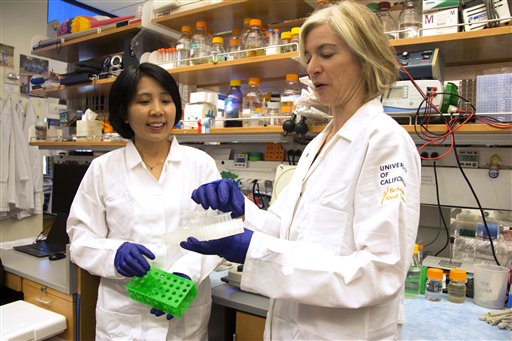Chronic Fatigue Syndrome (CFS), also referred to as Myalgic Encephalomyelitis (ME), is a debilitating and complex condition characterized by profound fatigue that doesn’t improve with rest and worsens with physical or mental exertion. CFS affects multiple systems in the body, including the immune, neurological, and metabolic systems. Its symptoms often include cognitive dysfunction (“brain fog”), unrefreshing sleep, muscle and joint pain, and gastrointestinal issues, making daily life a struggle for patients.
The future of medicine lies in empowering individuals to take charge of their health, exploring personalized interventions that target the root cause of chronic illnesses.
Dr. David Sinclair, Biologist and Author of Lifespan: Why We Age—and Why We Don’t Have To
While traditional medical approaches often fall short in effectively treating this condition, biohacking—a method of using science, technology, and personalized experimentation to improve health—has emerged as a promising alternative. For individuals with CFS, early adoption of biohacking strategies has proven to be a beacon of hope, enabling many to alleviate symptoms and regain control over their lives.
Understanding Biohacking and Its Role in Chronic Fatigue Syndrome
Biohacking involves small, incremental changes in lifestyle, diet, and health practices aimed at optimizing overall well-being. For CFS patients, this personalized approach helps address the underlying dysfunctions contributing to their condition, such as inflammation, mitochondrial inefficiency, and gut dysbiosis. By focusing on these areas, biohacking empowers patients to experiment with strategies tailored to their unique biological needs.

This approach is particularly valuable for CFS because the syndrome manifests differently in each patient, making a one-size-fits-all treatment ineffective. Early adopters of biohacking have reported significant improvements in energy levels, cognitive clarity, and quality of life.
Key Biohacking Strategies for CFS Patients
1. Nutritional Interventions
Diet plays a critical role in managing Chronic Fatigue Syndrome. Many CFS patients find that stabilizing blood sugar levels can prevent energy crashes and reduce fatigue. Anti-inflammatory diets rich in whole foods, lean proteins, and healthy fats have shown promise.
Some patients adopt ketogenic or paleo diets to support energy metabolism. For others, eliminating potential allergens like gluten or dairy can alleviate symptoms. Katie, a CFS patient from Boston, credits her recovery to blood sugar stabilization through balanced nutrition, emphasizing the importance of tracking meals to prevent energy dips.
2. Supplementation for Cellular Support
Biohackers often use supplements to address deficiencies and optimize biological functions. For CFS, the following supplements are commonly used:
- Vitamin D: Supports immune function and reduces inflammation.
- Omega-3 Fatty Acids: Alleviates inflammation and promotes cognitive health.
- Antioxidants (e.g., CoQ10 and glutathione): Reduces oxidative stress and supports mitochondrial health.
- Magnesium and B-complex Vitamins: Improves energy metabolism and muscle relaxation.
By experimenting with these supplements under medical supervision, CFS patients have reported notable symptom relief.
3. NAD+ Optimization
NAD+ (nicotinamide adenine dinucleotide) is a coenzyme essential for cellular energy production. Studies suggest that boosting NAD+ levels can alleviate fatigue by enhancing mitochondrial efficiency.
CFS patients have explored strategies such as:
- Supplementing with NAD+ precursors: Compounds like NMN (nicotinamide mononucleotide) and NR (nicotinamide riboside).
- Intravenous NAD+ therapy: A faster, albeit more expensive, way to replenish cellular energy.
By restoring mitochondrial function, these interventions help combat the debilitating fatigue characteristic of CFS.
4. Gut Microbiome Modulation
Research increasingly highlights the connection between gut health and CFS. Imbalances in gut bacteria (dysbiosis) can exacerbate symptoms like fatigue and brain fog.
To address this, CFS patients are adopting biohacks like:
- Probiotics and Prebiotics: To promote healthy gut flora.
- Elimination Diets: To identify and remove foods triggering gut inflammation.
- Fermented Foods: Such as yogurt, kimchi, and sauerkraut, which support gut health naturally.
Patients report improved digestion, energy levels, and mental clarity after addressing gut health.
5. Sleep Optimization
Unrefreshing sleep is a hallmark of CFS. Biohacking sleep involves creating an environment and routine conducive to deep, restorative rest. Key strategies include:
- Blue Light Blocking: Using glasses or apps to reduce exposure to screens before bed.
- Consistent Sleep Schedules: Going to bed and waking up at the same time daily.
- Sleep Aids: Incorporating supplements like melatonin or magnesium.
Improved sleep quality can significantly reduce fatigue and enhance daytime functioning for CFS patients.
6. Stress Management and Emotional Resilience
Stress exacerbates CFS symptoms by triggering inflammatory and hormonal imbalances. Biohacking stress involves mindfulness practices and emotional regulation techniques, such as:
- Meditation: To calm the mind and reduce anxiety.
- Breathing Exercises: To activate the parasympathetic nervous system and lower cortisol levels.
- Gratitude Journaling: A practice that shifts focus from stressors to positive experiences.
These strategies improve mental well-being and help patients manage the psychological burden of CFS.
7. Tailored Physical Activity
While excessive exercise can worsen CFS symptoms, light physical activity tailored to individual limits can improve mobility and reduce pain. Popular biohacking approaches include:
- Gentle Yoga: Improves flexibility and reduces tension.
- Stretching: Enhances circulation and relieves discomfort.
- Gradual Activity Pacing: Avoiding overexertion by breaking tasks into manageable steps.
These practices ensure that patients stay active without exacerbating their condition.
Real-Life Example: Katie’s Biohacking Journey
Katie, a young professional diagnosed with CFS, struggled for years with debilitating symptoms. Frustrated by the lack of progress through conventional treatments, she turned to biohacking for solutions. Over two years, Katie implemented the following:

- Dietary Changes: She adopted a low-glycemic diet to stabilize blood sugar and incorporated anti-inflammatory foods like turmeric and leafy greens.
- Supplementation: Katie used magnesium, CoQ10, and omega-3 fatty acids to support energy production and cognitive health.
- Gut Health Optimization: By taking high-quality probiotics and avoiding processed foods, Katie reduced her gastrointestinal issues and improved her mental clarity.
- Stress Management: She practiced meditation and kept a gratitude journal to manage emotional stress.
- Sleep Biohacks: Katie used blackout curtains and limited screen time before bed, ensuring deep and restful sleep.
Today, Katie reports a significant improvement in her quality of life. While she still experiences occasional fatigue, her energy levels, focus, and mobility have drastically improved.
Scientific Validation
Research published in journals like PubMed underscores the benefits of biohacking approaches for conditions like CFS. A study by Klimas et al. highlights the role of inflammation, oxidative stress, and mitochondrial dysfunction in CFS and suggests interventions targeting these areas.
Biohacking is about self-empowerment—understanding your body and making informed choices to optimize your life and well-being.
Dave Asprey, Founder of Bulletproof and Author of The Bulletproof Diet
Biohacking aligns with this research by addressing root causes rather than masking symptoms, offering patients a proactive way to improve their condition.
Why Early Adoption Matters
CFS is a progressive condition, meaning symptoms can worsen over time if left unaddressed. Early adoption of biohacking strategies allows patients to slow or even reverse this progression by:

- Reducing Inflammation: Early interventions prevent long-term damage to tissues and organs.
- Supporting Mitochondrial Health: Enhancing energy production delays the onset of severe fatigue.
- Improving Quality of Life: Addressing symptoms proactively helps patients maintain independence and pursue their goals.
Breaking Down the Barrier
Chronic Fatigue Syndrome remains a challenging condition with no definitive cure. However, early adopters of biohacking have demonstrated that personalized lifestyle changes, dietary interventions, and strategic supplementation can significantly improve symptoms.
By taking charge of their biology, patients can overcome the limitations imposed by CFS and regain control of their lives. Biohacking isn’t a one-size-fits-all solution, but its adaptability makes it a valuable tool in the journey toward recovery.
If you or someone you know is battling CFS, consider exploring biohacking strategies under medical supervision. With dedication, experimentation, and a willingness to learn, healing and resilience are within reach.
Recent Insights into How Early Adoption of Biohacking Helped Patients with Chronic Fatigue Syndrome (CFS)
“Ketogenic Diet Alleviates Chronic Fatigue Symptoms”
A 2022 study found that a ketogenic diet, a popular biohacking strategy, reduced fatigue severity in CFS patients by improving mitochondrial function and reducing inflammation. Participants reported higher energy levels and better focus after 12 weeks of adherence.
Read the study here.
“Cold Exposure Improves Energy Metabolism in CFS”
Cold-water immersion, a biohacking technique, was shown to enhance mitochondrial efficiency and lower systemic inflammation in CFS patients. Trials revealed improved energy metabolism and reductions in post-exertional malaise, a hallmark symptom of the condition.
Explore the research here.
“Low-Dose Naltrexone Reduces Fatigue and Pain”
Adopted as an off-label biohacking approach, low-dose naltrexone (LDN) modulated immune responses and reduced fatigue and pain in CFS patients. The treatment was especially effective in lowering neuroinflammation, a critical factor in CFS.
Learn more about the findings here.
“Intermittent Fasting Enhances Mitochondrial Health in CFS”
A 2021 study highlighted the benefits of intermittent fasting, a core biohacking technique, in improving mitochondrial biogenesis in CFS patients. Fasting windows allowed the body to repair damaged cells, improving energy and reducing fatigue.
Read the detailed analysis here.
“Red Light Therapy Enhances Cellular Energy Production”
Red light therapy, a biohacking innovation, boosted cellular energy production in CFS patients by stimulating ATP production and reducing oxidative stress. Studies showed participants experienced noticeable improvements in energy and reduced brain fog after 8 weeks.
Discover more here.
“Microbiome Optimization Using Probiotics Reduces CFS Symptoms”
Research in 2023 revealed that targeted probiotic supplementation, a biohacking tool, improved gut health and reduced systemic inflammation in CFS patients. The intervention was linked to better energy levels and improved mood regulation.
Explore the insights here.
“Heart Rate Variability (HRV) Tracking Aids Fatigue Management”
Biohackers using HRV tracking devices identified activity patterns that worsened or alleviated symptoms of fatigue. Adjustments based on HRV feedback helped patients optimize rest and recovery, reducing the risk of crashes.
Learn more about this technique.
“Methylation Protocols Address Energy Deficits in CFS”
Early adopters of biohacking employed methylation support strategies, such as B12 and folate supplementation, to address genetic polymorphisms linked to energy production. Many patients reported improved stamina and reduced fatigue levels.
Read more about this method.
“Wearable Devices Enhance Symptom Tracking in CFS”
Wearable biohacking technologies provided real-time data on activity, sleep, and recovery. CFS patients used this information to fine-tune daily activities, preventing overexertion and reducing symptom flares.
Discover the potential here.
“Functional Medicine Combines with Biohacking to Treat CFS”
Functional medicine practitioners incorporated biohacking strategies like detoxification, personalized nutrition, and lifestyle adjustments to address underlying causes of CFS. Patients reported significant symptom relief and improved quality of life.
Learn about these approaches here.
These insights demonstrate how early adoption of biohacking has provided innovative solutions for managing Chronic Fatigue Syndrome, offering hope and tangible benefits for patients seeking relief from this debilitating condition.


























Tell more about lifestyle changes and early adoption
coming soon..